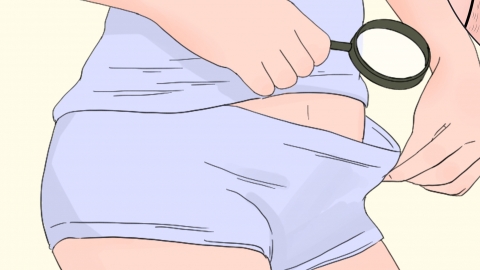Why does vaginal inflammation occur every time after having intercourse?
Generally, vaginal inflammation occurring immediately after sexual intercourse may be caused by poor hygiene during sex, vaginal mucosal injury, bacterial vaginosis, vulvovaginal candidiasis, or trichomoniasis. It is recommended to seek medical attention promptly, identify the underlying cause, and receive appropriate treatment under a doctor's guidance. Specific causes are analyzed as follows:

1. Poor hygiene during intercourse: If both partners do not clean their external genitalia before or after intercourse, bacteria and dirt can enter the vagina and trigger inflammation, often accompanied by itching and foul-smelling discharge. Both partners should wash the external genital area with warm water before intercourse; men should thoroughly clean beneath the foreskin. Women should urinate soon after intercourse and wash again to reduce the risk of infection.
2. Vaginal mucosal injury: Rough movements or insufficient lubrication during intercourse can damage the vaginal mucosa, compromising its protective barrier and making it prone to inflammation. Symptoms may include pain during intercourse and slight bleeding. Avoid vigorous movements, use water-based lubricants, refrain from intercourse until the mucosa has healed, and wear loose cotton underwear to minimize friction.
3. Bacterial vaginosis: An imbalance in vaginal flora—specifically, a reduction in lactobacilli—allows harmful bacteria to proliferate. Symptoms often worsen after intercourse, with grayish-white discharge having a fishy odor. Patients may use medications such as metronidazole vaginal suppositories, clindamycin phosphate gel, or tinidazole suppositories as prescribed by a physician to control the infection.
4. Vulvovaginal candidiasis: Inflammation caused by excessive growth of Candida (yeast) is aggravated by sexual activity. Discharge resembles cottage cheese and is accompanied by intense itching. Treatment may include clotrimazole vaginal tablets, miconazole nitrate suppositories, or nystatin vaginal suppositories, used according to medical advice to relieve symptoms.
5. Trichomoniasis: Caused by infection with Trichomonas vaginalis, this condition is transmitted through sexual contact and often recurs after intercourse. Discharge is yellow-green and frothy. Treatment options include oral metronidazole, tinidazole, or ornidazole capsules, taken as directed by a healthcare provider.
In daily life, maintain cleanliness and dryness of the external genital area, and avoid using irritating cleansers to wash inside the vagina. Change underwear frequently, wash it separately, and sun-dry it for disinfection. Wear breathable, loose-fitting clothing and avoid prolonged use of tight pants to help maintain a healthy vaginal microbiome and reduce the likelihood of recurrent inflammation.




